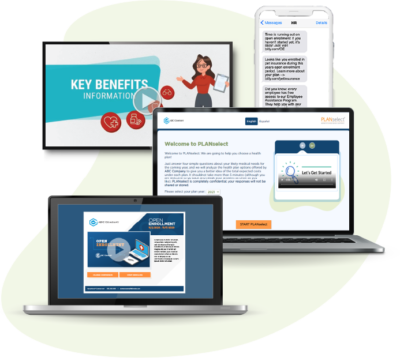 If you pay attention to certain articles published around the web, you’d think HR managers are pulling their hair out trying to keep millennials at work. They assume millennials and Generation Z are flighty, flaky workers who don’t stick with the same employer for long. Before we examine what affects their loyalty, we need to dispel the myth that millennials are always looking for a way out of your workplace.
If you pay attention to certain articles published around the web, you’d think HR managers are pulling their hair out trying to keep millennials at work. They assume millennials and Generation Z are flighty, flaky workers who don’t stick with the same employer for long. Before we examine what affects their loyalty, we need to dispel the myth that millennials are always looking for a way out of your workplace.
When comparing millennial professional loyalty with that of baby boomers in the 1980s, the figures are actually similar. In the 1980s, boomers worked for a company for a median of five years. In 2018, the millennial median was 4.2 years.
However, there’s a growing sense that millennials are more willing than their predecessors to leave their jobs. They’re seen as more likely to freelance or hop from job to job to find roles and workspaces that appeal to them. We need a deeper look to understand why millennials might want to leave and what could convince them to stay. If your goal is to slow or stop your cycle of turnover, understanding is the first step.
Modern Economic Factors Sometimes Overlooked by HR Managers
 It can be difficult to remember just how difficult the Great Recession made it for young people to find quality jobs. Many millennials still feel the anxiety like a hangover, fearing any job stability could be yanked out from under them. Those born between 1985 and 1990 certainly remember the struggle of finding a job. Many were earning their college degrees in 2008 and 2009 when the recession first struck. They were entering a devastated job market with little practical experience and student loans to repay.
It can be difficult to remember just how difficult the Great Recession made it for young people to find quality jobs. Many millennials still feel the anxiety like a hangover, fearing any job stability could be yanked out from under them. Those born between 1985 and 1990 certainly remember the struggle of finding a job. Many were earning their college degrees in 2008 and 2009 when the recession first struck. They were entering a devastated job market with little practical experience and student loans to repay.
As a millennial, I can tell you that after I earned my bachelor’s degree in 2010, I quickly developed an anxious mindset. I constantly monitored job boards to find new opportunities, even while working full time. There was no guarantee I would still have my job at the end of the month, let alone the end of the year. Long recruiting processes and cut-throat competition were the norm for any job promising decent wages and perks like employee benefits. I didn’t lose my job, but entering the wreckage of the job market at that time made me suspicious of HR and hiring managers. It planted the idea that the best way to gain stability was to constantly be looking for better opportunities outside the company. At the same time, at work, I felt pressured to prove I was worth keeping while others were laid off.
The competitive job market these days puts pressure on millennials to mix our life and work to gain an advantage. Work is more mobile now with new communication options appearing alongside advances in technology. This has eroded what some older generations consider core aspects of work and affects what they expect from workers. In other words, there’s a disconnect between HR managers and millennials in the workforce.
What Millennials Want
Most stereotypes you’ve heard about millennials are wrong. Millennials are focused, efficient, just as driven and concerned about improving themselves as anyone else. We’re in tune with the changing nature of work and embrace those changes by casting off old roles. It’s this rejection of tradition that often causes frustration.
 It’s no accident that many high-profile companies like Google try to keep their millennial workforces around with ping-pong tables and free lunches. “Fun” workspace perks like foosball tables promote a relaxed atmosphere for an anxious generation. These workspaces also mimic the college experience, which was a rare stable environment for many millennials. They give workers added incentives to show up for and be comfortable at work.
It’s no accident that many high-profile companies like Google try to keep their millennial workforces around with ping-pong tables and free lunches. “Fun” workspace perks like foosball tables promote a relaxed atmosphere for an anxious generation. These workspaces also mimic the college experience, which was a rare stable environment for many millennials. They give workers added incentives to show up for and be comfortable at work.
But in the end, air hockey and free lunches aren’t what millennials want the most. Probably the top aspect millennials are looking for in a job is meaningful work. We want to be part of a productive team doing something that matters. We want to affect the world in even a small way. When millennials feel like we’re a part of a team performing meaningful work, we’ll be more dedicated to our work. We’ll stay put and try to rise within your organization.
Fostering Loyalty from Millennials at Work
HR managers try to endow all new workers with a sense of purpose and meaning. But not every position at the company is mission driven and vital to the success of the company. How can HR managers keep younger-generation workers around?
Millennials want opportunities in the organization. Workers in less mission-driven roles feel part of the larger whole when they know how to rise within the organization. Opportunities to take on more responsibility, take additional training programs and learn from superiors give all workers, not just millennials, renewed purpose in their work. Purpose breeds loyalty.
Empathy and trust help too. Understanding millennial fears and where they come from should improve HR managers’ ability to communicate with their millennial workers. Communication tools that empower workers and encourage feedback can help relieve anxiety by giving them some control. Trust goes both ways, so showing you trust your workers will help them trust you back. The bonds of trust reinforce and strengthen loyalty.






